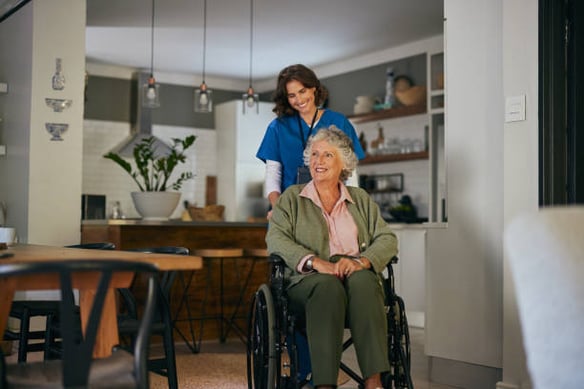
As home care providers, your mission is clear: deliver exceptional, compassionate care to patients in the safety and comfort of their homes. You've adopted Electronic Medical Records (EMRs) to streamline this process, giving your clinicians vital data at their fingertips. But there’s a critical gap in this digital transformation—one that threatens your clinical operations, your compliance, and the very trust you’ve built.
While your EMR vendor secures the software itself, the laptops, tablets, and phones your clinicians use every day are often the weakest link. This is the endpoint security gap, and for home-based care, it’s not just an IT issue—it’s a patient safety issue.
Why Your Mobile Workforce is a Prime Target
Think about a clinician’s typical day: traveling between patients, using coffee shop Wi-Fi, documenting care in a patient's living room. Each of these moments presents a risk.
Cybercriminals know that home health agencies are treasure troves of personal health information (PHI), but often lack the robust security of a large hospital. They don’t attack the fortress; they target the mobile gatekeepers—your clinicians.
The consequences aren't abstract. They are devastatingly real:
1. The Ransomware Attack That Halts Care: Imagine a clinician accidentally clicking a phishing link. Ransomware locks all their patient records and care plans. Suddenly, you cannot access visit schedules, medication lists, or treatment plans. Clinical care grinds to a halt. This is a direct threat to patient safety and your ability to operate.
2. The Stolen Laptop That Bankrupts an Agency: A laptop left in a car is stolen. It wasn’t encrypted, and it contained the PHI of 1,000 patients. This triggers a mandatory HIPAA Breach Notification, a federal investigation, potential fines of $50,000 or more per record, and a mandatory public notice that shatters patient trust.
3. The Lost Reputation That Loses Referrals: Hospital systems and payers are increasingly vetting the security posture of their partners. A public breach notice or a failed security audit can cause you to lose crucial referrals from hospitals that cannot risk partnering with a vulnerable agency.
Bridging the Gap: Security as a Standard of Care
The good news is that this risk is manageable. Protecting your endpoints doesn’t require an IT department or complex installations. It requires a modern solution built for the reality of mobile care.
A secure framework for a home health agency should:
· Protect Every Endpoint, Everywhere: Automatically secure laptops and mobile devices, whether clinicians are at the office, in a patient’s home, or on public Wi-Fi.
· Be “HIPAA-Ready”: Provide pre-configured settings and automated reporting that make compliance straightforward and audit-ready.
· Defend Without Disruption: Operate seamlessly in the background without slowing down clinicians or interfering with patient care.
· Be Invisible and Easy to Manage: Be so simple to deploy and manage that it doesn’t add to your administrative burden.
A Call to Action for Massachusetts Home Care
As an industry, we have a duty to extend our standard of care from the clinical realm to the digital one. Securing our endpoints is no longer optional; it is a fundamental component of responsible patient care and business operations in the 21st century.
Your next step: Don't wait for an incident to be your wake-up call.
1. Conduct a internal review: How are your endpoints currently protected?
2. Educate your staff: Train clinicians on identifying phishing attempts and securing devices.
3. Ask us about the "Massachusetts Secure Home Care" initiative to learn about free resources available to Alliance members.
By working together, we can ensure that the future of home care is not only more connected but also more secure.
ShieldForce has designed a Free Agency Risk Assessment for Home Care Alliance Members. Please sign up for a demo and get your FREE Assessment here: https://shieldforce.io/home-healthcare
---
This article was contributed by Obi Ibeto, founder of ShieldForce, a global cybersecurity service provider focused on educating and protecting the home healthcare industry.






.jpeg?width=50&name=Media%20(4).jpeg)